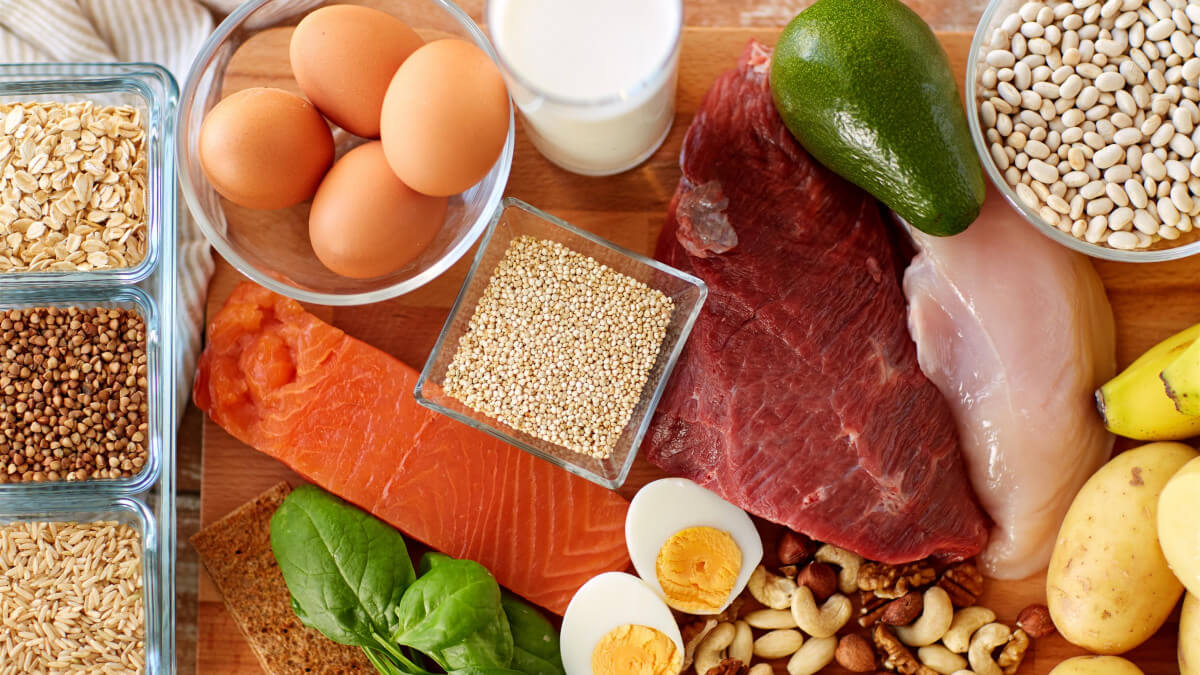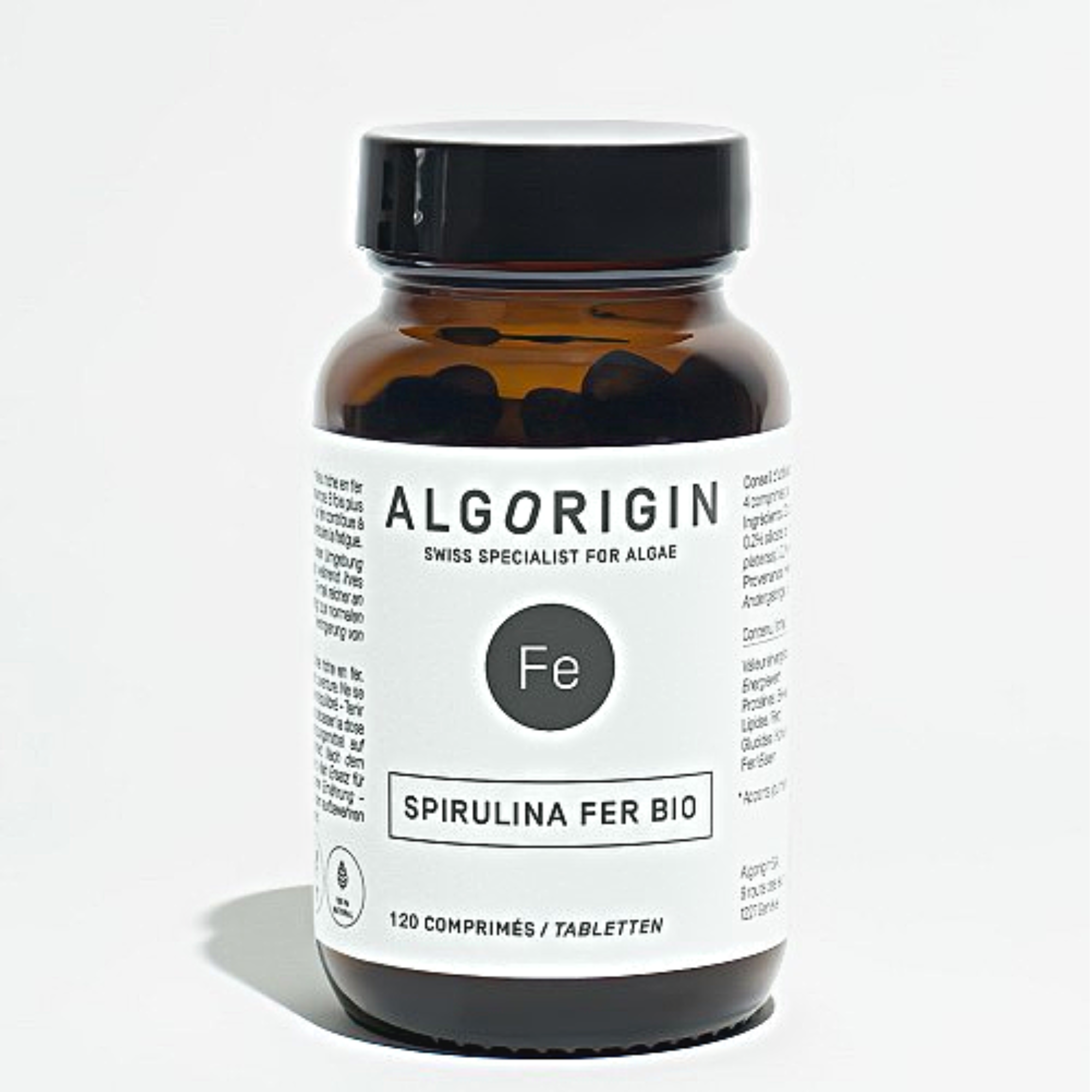Usually, people are looking for a vitamin or even a dietary supplement to gain weight or to help them lose weight. However, some people need to gain weight. It is very important to find the right vitamins to help you gain weight. Whether you're trying to gain weight or need to gain weight for your health, here are options that can help.
Top 5 Vitamins to Help You Gain Weight
1. B vitamins
If you have a vitamin B deficiency, you may have an eating disorder. This can make it difficult to gain weight. Vitamin B also contributes to the function of maintaining muscle tone. Some of these vitamins also help convert carbohydrates into energy. If you have a vitamin B1 or thiamine deficiency, it can cause you to lose weight. On the other hand, a deficiency in B12 or B9 can cause anemia, which can cause you to lose your appetite and lead to weight loss.
Taking vitamin B can help you improve your weight. It can give you better health and increase your muscle tone. Gaining weight requires eating more calories from nutrient-dense foods. Taking vitamins to gain weight is only effective if you have a nutrient deficiency that caused you to lose weight. Nutrient deficiencies that can cause weight loss include vitamins C, B12, and folate.
The food supplement for gaining weight is a godsend to avoid consuming too many calories per day.
Read: The benefits of food supplements
Nutrient Deficiencies and Weight Loss
Most people who eat a balanced diet can get all the vitamins they need from food and avoid deficiencies. But an unhealthy diet or certain illnesses that affect the way your body absorbs nutrients can cause your blood levels to drop. When this happens, especially over a long period of time, you start to experience symptoms. Deficiencies of vitamin C, vitamin B12 and folic acid can lead to anemia, meaning the body cannot produce enough red blood cells. The main symptoms of anemia are fatigue, shortness of breath, muscle weakness, dizziness, irregular heartbeat, personality changes, mental confusion or forgetfulness, loss of appetite, and weight loss.
Causes of anemia
Vitamin C deficiency is usually due to poor diet or problems absorbing the nutrient. Smokers are at increased risk of vitamin C deficiency because smoking interferes with absorption. People with chronic illnesses such as kidney disease or cancer also have a higher risk of deficiency. B12 deficiency is sometimes caused by a lack of intrinsic factor, a protein made in the stomach and necessary for the body's absorption of the vitamin. It can also be caused by surgery that involves the removal or bypassing of part of the small intestine, a restrictive vegetarian diet, removal of part or all of the stomach, taking medications, aging and autoimmune diseases such as type 1 diabetes.
A deficiency of the B vitamin folate -- called folic acid in supplement form -- is usually caused by low dietary intake, malabsorption disorders, and medications. Pregnant women have increased folate requirements and are more likely to be deficient, as are people treated with hemodialysis for kidney failure. Some medications used in cancer treatment can affect folate metabolism, resulting in low folate levels.
Read: Fight against oxidative stress
Vitamins to regain weight
If you have lost weight due to a nutrient deficiency, you should not try to correct the problem yourself. Generally, correcting a deficiency involves short- or long-term use of supplements combined with an increase in dietary intake of the nutrient in question. If an underlying disease or medication interferes with absorption, your doctor may consider this in your treatment plan.
In the meantime, make sure you're getting at least the recommended daily allowance (RDA) of vitamins C, B12, and folate, as determined by the Food and Nutrition Board of the National Academies of Medicine as being appropriate for the general population. These amounts vary depending on whether you are a man, a woman, a pregnant woman or breastfeeding.
Vitamin C :
- Men - 90 milligrams
- Women - 60 milligrams
- Pregnancy – 85 milligrams
- Breastfeeding – 120 milligrams
Vitamin B12:
- Men - 2.4 micrograms
- Women - 2.4 micrograms
- Pregnancy – 2.6 micrograms
- Breastfeeding – 2.8 micrograms
Folate:
- Men - 400 micrograms
- Women - 400 micrograms
- Pregnancy - 600 micrograms
- Breastfeeding - 500 micrograms
Maintaining these intakes, or the amounts recommended by your doctor, will help normalize your blood levels. You should then start to regain the weight you lost thanks to the weight loss supplement.
Calories to gain weight
Whether or not you have a nutrient deficiency causing your weight loss, your diet is the most important factor in weight gain. If you don't consistently meet your daily calorie needs, you risk falling into a calorie deficit, meaning your body burns more calories than you consume. This causes the breakdown of fatty acids and lean muscle mass, leading to weight loss. If you're not sure how many calories you need to gain weight, it's important to talk to your doctor. Caloric needs are individual and depend on gender, age, activity level and other factors such as genetics, medications and medical conditions.
You can get a rough idea of your calorie needs to maintain your weight by using estimates from the Dietary Guidelines for Americans, 2015-2020. For example, moderately active men ages 26 to 45 need 2,600 calories per day, and moderately active women in the same age range need 2,000 calories per day. Being moderately active means you engage in physical activity equivalent to walking 1.5 to 3 miles per day at a pace of 3 to 4 miles per hour. This activity is in addition to the activities of daily life. If you're not meeting your daily calorie needs, simply increasing your intake to meet those goals can cause you to gain pounds. If you're already meeting your caloric needs, you'll need to increase your intake beyond the recommended amounts. People with fast metabolisms, who often have difficulty gaining weight, must eat more than people with slower metabolisms to achieve the same weight.
Discover the Algorigin food supplements: Swiss Spirulina , organic Klamath , Lithotamne ...
A good goal is to start with a modest increase of 250 to 500 calories per day, then increase as necessary over a period of weeks or months. By gaining weight slowly, you will avoid gaining a lot of fat, especially if you follow an exercise regimen that includes resistance training.
2. Vitamin D
One of the most important vitamins, vitamin D helps you gain weight if used correctly. This vitamin helps your immune system and can protect you from diabetes. It also makes your bones and teeth stronger. While simply taking vitamin D won't make you gain weight, a deficiency in this vitamin can make it more difficult to gain healthy weight.
3. Vitamin C
Vitamin C, which has the ability to slow down your metabolism, can help you gain weight. It is a vitamin necessary to protect your body, but also to help you gain weight. While slowing metabolism can cause you to gain weight, vitamin C can also prevent you from overeating.
4. Iron
A very important metal that your body needs, iron can help you gain weight. It plays a role in transferring oxygen to your body's cells. While taking iron by itself won't cause you to gain weight, it can make it easier to gain healthier weight.
5. Protein
Although it is not a vitamin that helps with weight gain, protein is essential for healthy weight gain. They are important for muscle function and studies show that you will gain more weight with protein supplements. Getting enough protein daily can make a difference. However, consuming too much does not mean you will gain more weight. It is best to consume between 0.6 and 0.9 grams per kilogram of body weight each day. There are several vitamins and supplements you can take to gain weight. However, the biggest factor in weight gain is consuming more calories than you expend each day. Of course, getting the right vitamins in your diet can help you gain weight in a healthy way.

Many athletes trying to gain weight use shakes and bars filled with protein and the right vitamins to gain weight. These athletes still need to eat enough calories each day to gain weight. While most vitamins can't help you gain weight, a deficiency can cause you to lose weight or prevent you from gaining weight.
Read also: What is a postpartum supplement ?
Choose healthy foods
Gaining weight isn't just about calories. You can eat pizza all day and get lots of extra calories, but you'll also get lots of saturated fat and simple carbs, both of which can wreak havoc on your health. If you are looking to fill a nutrient deficiency, it is especially important to consume foods rich in this nutrient. For example :
- If you have a vitamin C deficiency, eat red and green peppers, citrus fruits, kiwis, strawberries, Brussels sprouts, cantaloupe and cauliflower.
- If you have a vitamin B12 deficiency, eat clams, liver, trout, salmon, milk, cheese and fortified cereals.
- If you're low in folate, eat beef liver, spinach, asparagus, Brussels sprouts, lettuce, avocado, broccoli, and fortified cereals.
In general, a healthy diet for weight gain should include whole foods, including: carbohydrates from fruits, vegetables and whole grains; protein from fish, chicken, beans and dairy products; and healthy fats from avocados, olive oil, nuts and seeds. This last category should definitely be at the top of your list of foods for weight gain, because fats are more caloric than carbohydrates and proteins. By adding them to your meals, you can increase their calorie content. If you struggle to get enough calories through solid foods, you can try adding nutrient-dense smoothies, including ingredients such as full-fat yogurt, nuts and seeds, avocado, and coconut oil. You can also try eating several small meals per day instead of three large meals.
To avoid endangering your health, call a professional in food supplements.











